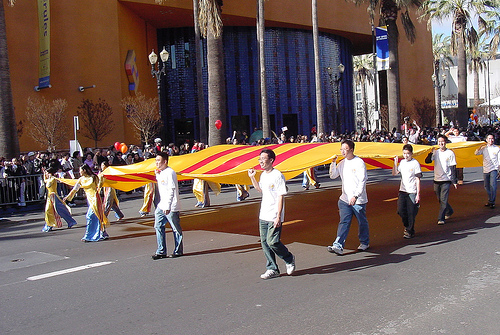
There are some who argue that becoming American means giving abandoning the culture from you come. Caroline B. Brettell and Deborah Reed-Danahay, say otherwise, based on their study of immigrant communities in Texas. How then do these communities become American? When does the idea of a pan Asian American identity ever form, if at all? These questions and others are examined in their book Civic Engagements, the Citizenship Practices of Indian and Vietnamese Immigrants, which is summarized here by Science Codex.
The study makes the point that American identity is distinct from U.S. citizenship. Brettell and Reed-Danahay say that American identity emerges in Vietnamese and Indian immigrants when they are involved in their own communities. This kind of civic engagement allows them to develop citizenship skills. They also warn against standards to force integration (e.g. full English proficiency standards, dictating to parents only to speak English to their children or things like Native American Boarding Schools). Brettell says:
“A key contribution of our research is its emphasis on the fact that the civic incorporation of newcomers does not necessarily mean abandoning who you are. Immigrant communities have spaces and places that are already operating as viable arenas for expressing civic and political presence and for becoming American.”
Other findings are that the notion of an Asian American identity spanning different Asian ethnic groups is hard to accept by first generation immigrants but seems more natural to their children. That doesn’t seem very surprising to me. Brettell and Reed-Danahay also say that American identity is fluid – the immigrants they interviewed felt American when at work, celebrating Thanksgiving, or when they go back to their homelands and realize that they are now different from the people there. Other immigrants, despite U.S. Citizenship, feel that they will never be considered American because of they don’t look white. That’s not surprising to me either.
Brettell and Reed-Danahay’s book is available from Stanford University Press and from here at Amazon.
(Flickr photo credit: The BaoHouse)
- Excited
- Fascinated
- Amused
- Disgusted
- Sad
- Angry








